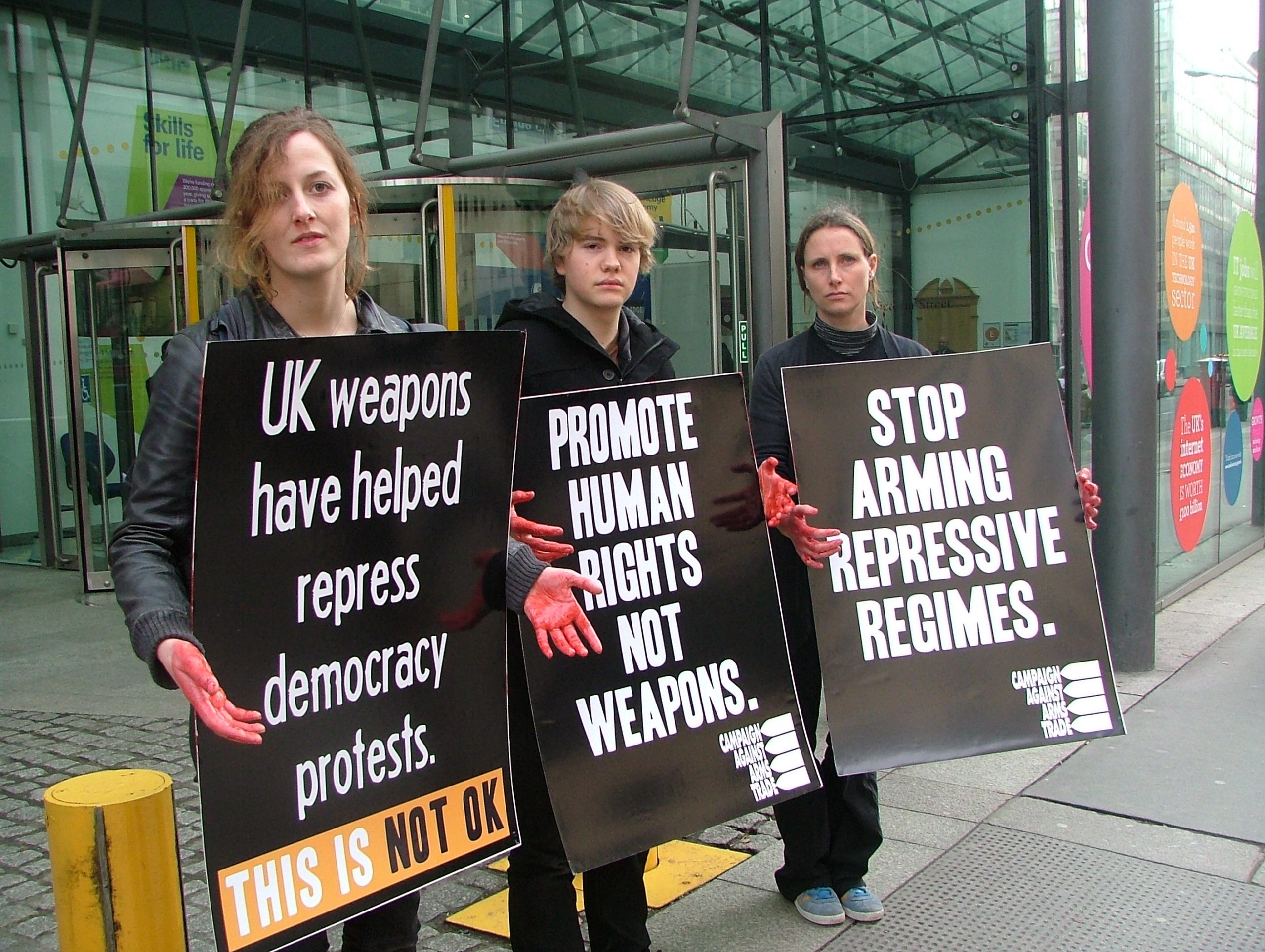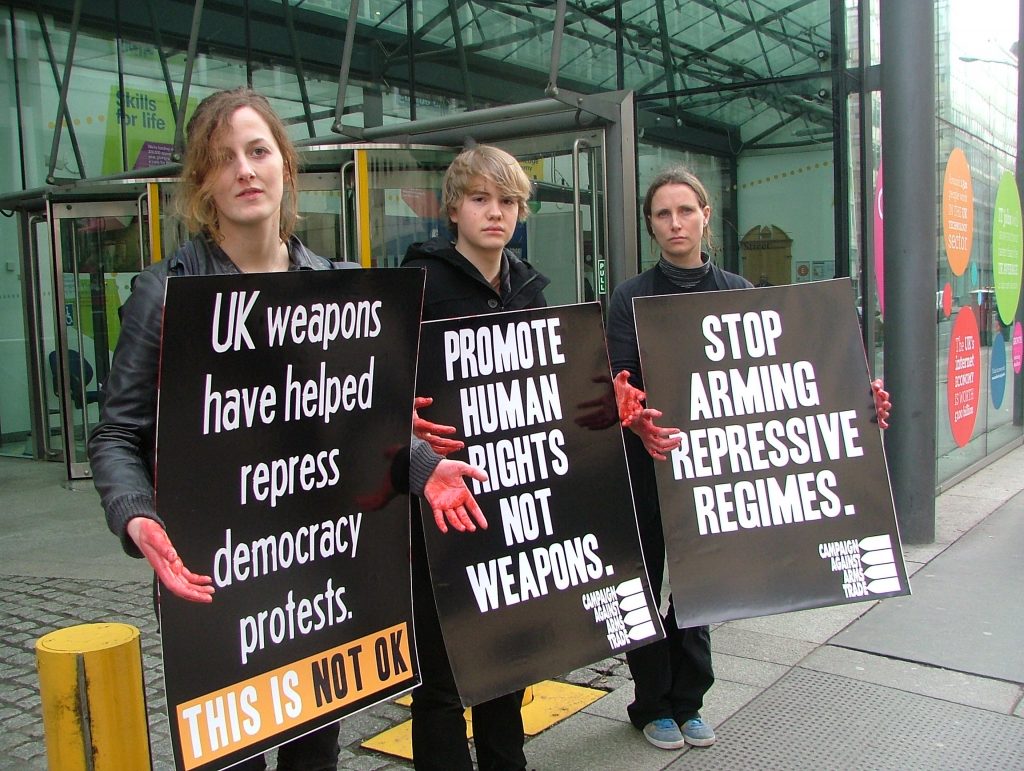On this day, two years ago, a group of Bahraini citizens gathered at the “Pearl Roundabout” to call for democratic freedoms and equal rights for the majority Shia population. They were part of the “Arab Spring”, the wave of protests that swept the region in 2011.
The ruling regime responded with violence. Peaceful protesters were met with bullets and teargas. Some of the weapons used by the police and military came from the UK.
In March, dozens of Saudi Tactica armoured personnel vehicles entered Bahrain to support the crackdown. Those Tacticas were manufactured by BAE Systems, and supplied to the Saudi Arabian National Guard in a special contract approved by the UK government.
In February 2011, the UK had revoked 44 arms licences to Bahrain. However, just a few months later, they were again licensing arms exports. Since then, there have been further weapons sales.
Two years on
Today, on the second anniversary of the uprising, the violence continues, with government forces raiding Shia villages, amid indiscriminate firing of bullets and birdshot. Already, one 16-year old boy has died. People have been injured or arrested. We do not know whether UK weapons were used in this crackdown but it is likely that some were available and were employed.
By its own actions the UK government must bear some responsibility for the violence in Bahrain. Here are just some of the reasons why this is the case:
- Since 2008, the UK has sold over £33 million worth of military and dual use goods to Bahrain. Over £8 million of this total was for weapons.
- From January to September 2012 the UK government approved 255 export licences to Bahrain, with a total value of £3.3 million.
- Licences were approved for small arms, such as assault rifles and pistols, and ammunition. These weapons are deadly. They have been used to shoot and injure protesters and people going around their everyday business.
- Licences were also approved for military communications equipment and components.
- However, the most valuable goods licensed are so called “dual-use goods” (ie can be used for civilian or military purposes), especially “equipment employing cryptography”, used to monitor, track and target protesters and other civilians.
- Until recently Bahrain was regarded as a priority market by the UK Trade & Investment Defence & Security Organisation, the government’s arms sales unit.
- Bahrain military delegations were invited to arms fairs, such as the 2011 Defence & Security Exhibition International (DSEI) and the 2012 Farnborough Air Show.
- The UK signed a new Defence Co-operation Agreement with Bahrain in October 2012, which includes “training and capacity building” of Bahrain’s military forces.
If these facts make you angry and upset, why not write to your MP, asking why the UK is acting in this shameful way and asking that the UK should immediately stop approving licences for all military and other harmful equipment to Bahrain and should not invite Bahrain to DSEI 2013.


